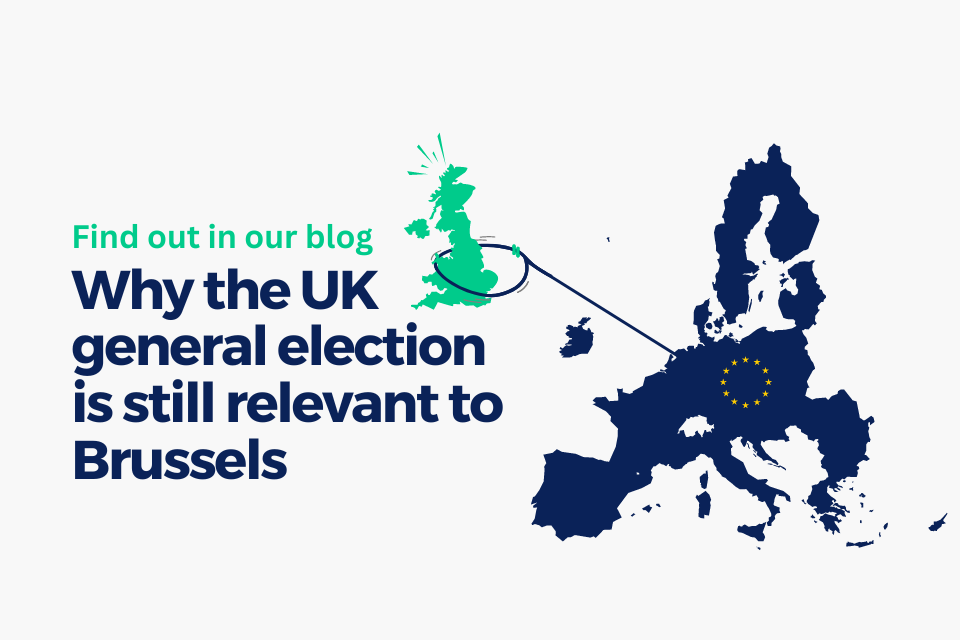Lithuania: presidential election fever but European election apathy
Acumen is publishing a special blog series in the run-up to the European elections in May 2019. Today it’s all about Lithuania.
#EUWhatsNext
GAME ON!
Lithuania is heading for major political changes this spring, with the upcoming presidential election taking center stage and overshadowing the European poll. The election of a new president takes place in two rounds on 12 May and 26 May, with the second round coinciding with the European elections.
The incumbent president Dalia Grybauskaitė, aka the Iron Lady of Lithuania, has already served the maximum two terms allowed and is therefore out of the running. Prime Minister Saulius Skvernelis is a definite runner, backed by the ruling center-left Farmers and Greens Union. Grybauskaitė and Skvernelis no longer try to hide their mutual dislike; some indeed argue that his open war with her is part of his presidential campaign.
Another notable candidate is the restless European Commissioner for health and food safety Vytenis Andriukaitis, who is making another run for the presidency, after failing in 1997 and 2002. Andriukaitis is standing for the Lithuanian Social Democratic Party but polls indicate that a mere 4,7% of voters would plump for him.
PRESIDENTIAL ELECTION FEVER– EURO ELECTION APATHY
The gloves are off among the presidential candidates. Skvernelis is at loggerheads with his main competitor, Ingrida Šimonytė, ex-minister of finance, who represents the conservative opposition, the Homeland Union – Lithuanian Christian Democrats. Just last week, the PM made headlines again by making his government the only all-male administration in the EU.
Andriukaitis has come under severe criticism at home as he was essentially blamed for the measles outbreak in Lithuania, the worst in decades, even before hitting the campaign trail with the current Lithuanian Health Minister Aurelijus Veryga, a prominent figure in the Farmers and Greens Union, leading the attack.
Ms Šimonytė and the economist Gitanas Nausėda, an independent candidate, are leading the presidential opinion polls. While Skvernelis comes third with 18.4% of votes, there is a tight race between Nausėda (23.5%) and Šimonytė (22%).
While Eurosceptic/populist political forces are making gains across Europe, it may come as a relief in Brussels that no matter who wins the election, he or she is unlikely to adopt the language of Euroscepticism. As many as 88% of Lithuanians think their country has benefitted from EU membership and 68% think membership is a good thing, amongst the highest levels of support in the EU-28.
CLASS OF 2024
Although Lithuanians view the EU very favourably, the European elections generate little interest among the Lithuanian electorate: loin des yeux, loin du coeur! The European Parliament seems too far away to matter and even politicians themselves are more concerned with what is happening in the capital Vilnius than in Brussels.
In the 2014 European Parliament elections, 47% of the voters turned out to cast their votes, still above average EU turnout. However, this year it is expected that turn-out might increase simply because the elections are being held on the same day as the 2nd round of presidential elections.
Lithuania is not set to benefit from the redistribution of EP seats post-Brexit – it will keep its current 11. Even so, this has not prevented political parties from lining up a total of 313 candidates even though trust in the parties has slumped to just 16%.
According to the latest projections, the Farmers and Greens Union (on 25%) is expected to make substantial gains and increase its seats from one to three. The Homeland Union-Lithuanian Christian Democrats (also on 25%), part of the ruling European People’s Party, is expected to keep its three seats. We should also see the return of Vilija Blinkevičiūtė, one of the most active Lithuanian MEPs according to VoteWatch for a thirdparliamentary term – the Social Democratic Party of Lithuania is expected to retain its 2 seats.
.png)
MEP Petras Auštrevičius (ALDE) has been on double duty – he tried running as the Lithuanian Liberal Movement’s presidential candidate as well as the Liberals’ top candidate for the European elections. Auštrevičius might however be left empty-handed – the Liberals are polling at just 4.74% and he has already pulled out of the presidential race.
While Eurosceptic forces are expected to make gains across Europe, the Order and Justice Party (on 7%), affiliated with the Europe of Freedom and Direct Democracy group (EFDD), is expected to retain just one of its two seats.
WHO WILL REPLACE BRUSSELS’ FAVORITE DOCTOR?
While Masiulis is already favored by Grybauskaitė, rumours are swirling that Skvernelis and his rulling party are scheming about how to get rid of Masiulis. And sending him to Brussels is one key option. Among government officials, the name of Rokas Masiulis, the current Minister of Transport and Communications, has been circulating as potential replacement of Andriukaitis in the European Commission. It remains unclear which portfolio Masiulis would get. Yet he may have good chances of getting his hand on the energy portfolio given his previous position as the Minister of Energy and over 10 years of experience in a number of senior positions in the energy sector.
.png)


